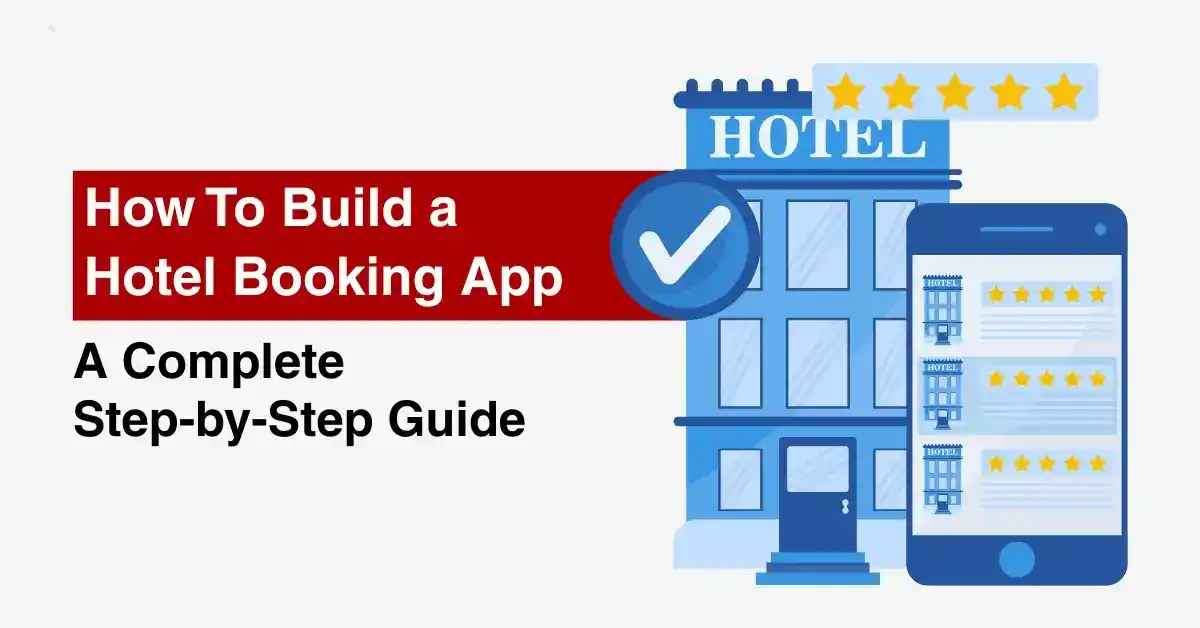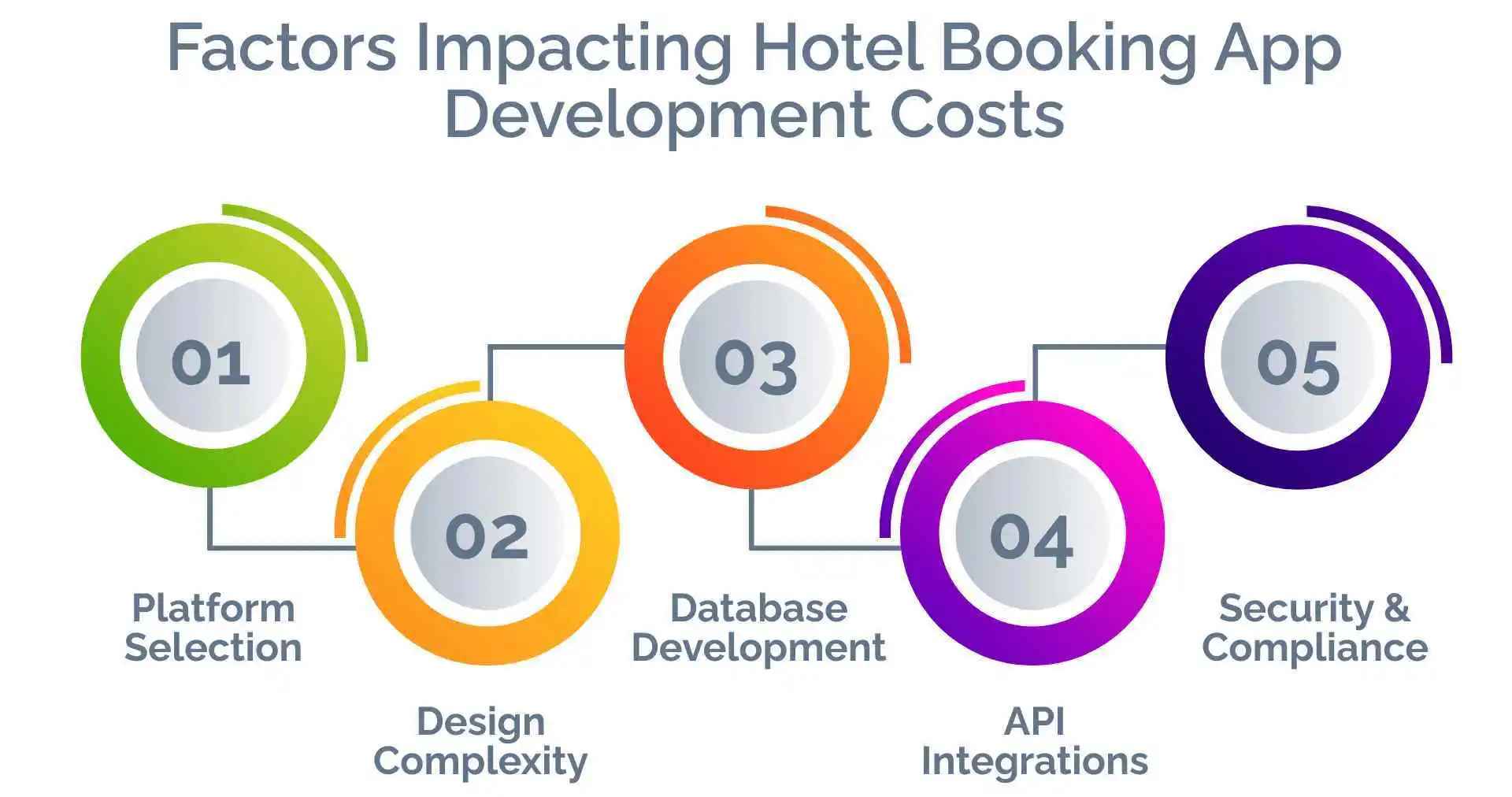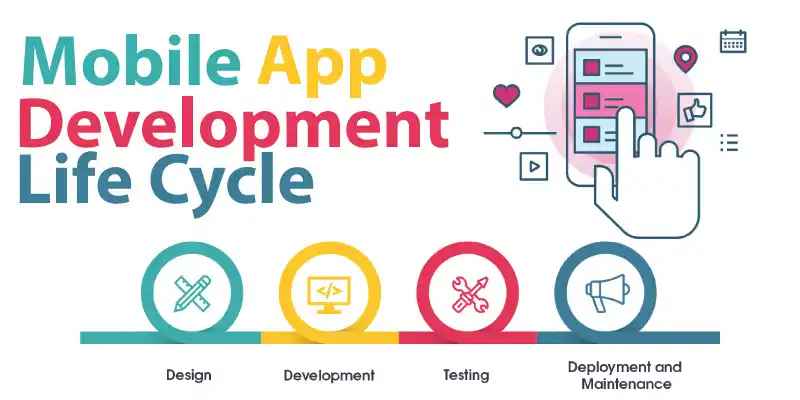Smart Algorithms Behind Hotel Booking Apps Like OYO
Updated on : 9 July 2025

Image Source: google.com
Table Of Contents
- 1. Introduction
- 2. Industry Insights: Hotel Booking App Landscape
- 3. Key Cost Drivers in Hotel Booking App Development
- 4. Essential Features for a High-Performing Hotel Booking App
- 5. Step-by-Step Process to Build a Hotel Booking Application
- 6. Revenue Generation Strategies for Hotel Booking Apps
- 7. Major Challenges in Hotel Booking App Development
- 8. Choosing the Right Platform for App Deployment
- 9. Technical Specifications and Requirements
- 10. Core Functionalities of Admin and User Panels
- 11. App Development Lifecycle: Testing, Launch and Maintenance
- 12. Developing Apps Like OYO
- 13. FAQs
Table Of Contents
Introduction
Behind every effortless hotel stay is a smart algorithm! In OYO‑style booking apps, it matches guest preferences 🛏️, crunches real‑time prices 💸, and updates availability instantly, turning data into a smooth, personalized booking journey every day! ✨
Industry Insights: Hotel Booking App Landscape

Image Source: google
- Global Growth in Online Travel 🌍
- The online travel market continues to expand, driven by increased smartphone penetration and easier digital payments.
- Dynamic Pricing as a Norm 💹
- Real‑time pricing algorithms help hotels maximize revenue while offering competitive rates to customers.
- Rise of Alternative Accommodations 🏠
- Users increasingly seek homestays and boutique options, pushing apps to diversify listings beyond traditional hotels.
- Mobile‑First Experience 📱
- A majority of bookings are now made on mobile, creating demand for fast, intuitive, and secure mobile apps.
- Personalization Through AI 🤖
- Machine learning tailors search results, offers, and loyalty rewards to individual user behaviors.
- Meta‑Search & Aggregation 🔎
- Consumers compare prices across OTAs, forcing platforms to ensure transparency and best‑price guarantees.
- Embedded FinTech 💳
- Pay‑at‑hotel, BNPL (Buy Now Pay Later), and subscription models enhance user flexibility and boost conversions.
- Sustainability Focus ♻️
- Eco‑friendly property tags and carbon offset options influence booking decisions, prompting green initiatives.
Key Cost Drivers in Hotel Booking App Development
| 💸 Cost Driver | 📌 Description |
|---|---|
| App Features & Complexity | AI‑driven recommendations, dynamic pricing, and multi‑currency payments elevate costs. |
| Platform Choice | Building for iOS, Android, and web or using a cross‑platform framework affects budget. |
| Third‑Party Integrations | Channel managers, map APIs, payment gateways, and CRM tools add integration overhead. |
| Scalability & Performance | Handling peak search traffic and real‑time inventory sync requires robust infrastructure. |
| Compliance & Security | GDPR, PCI‑DSS, and data encryption standards demand additional development and audits. |
Essential Features for a High-Performing Hotel Booking App
| 🏆 Feature | 📌 Description |
|---|---|
| Smart Search & Filters | Enable location, date, price, rating, and amenity filters with real‑time suggestions. |
| Dynamic Pricing Engine | Adjust room rates on‑the‑fly based on demand, seasonality, and competitor pricing. |
| Secure Multi‑Currency Payments | Support UPI, cards, wallets, BNPL, and crypto for a global user base. |
| Loyalty & Rewards | Offer points, coupons, or cashbacks to boost repeat bookings and customer retention. |
| Push Notifications | Send personalized deals, booking reminders, and check‑in instructions. |
| In‑App Support | Integrate chatbots and live agents for instant customer assistance. |
| User Reviews & Ratings | Display verified guest feedback with AI‑powered sentiment analysis. |
Step-by-Step Process to Build a Hotel Booking Application

Image Source: google
- 🧠 Market Research & Planning
- Study traveler personas, competitor offerings, and regulatory requirements in target regions.
- 📄 Define App Requirements
- Choose supported platforms, core modules (search, booking, payments), and monetization methods.
- 🎨 UI/UX Design
- Craft intuitive flows: hotel discovery → details → checkout, with minimal friction and clear CTAs.
- 💻 Backend Development
- Build microservices for search, inventory sync, pricing, and user management with high availability.
- 🔗 Third‑Party Integrations
- Connect to channel managers, payment gateways, maps, and notification services.
- 🔐 Security & Compliance Setup
- Implement encryption, tokenization, secure authentication (OTP/biometrics), and GDPR consents.
- 🧪 Testing & QA
- Perform functional, performance, and security testing, including load tests during peak seasons.
- 🚀 Launch & Deployment
- Release on app stores and web, optimize ASO/SEO, and set up monitoring dashboards.
- 📊 Post‑Launch Support & Updates
- Iterate with user feedback, introduce new payment options, and refine recommendation algorithms.

Need a stunning app? Hexadecimal Software builds it to impress.
Revenue Generation Strategies for Hotel Booking Apps
| 💰 Strategy | 📌 Description |
|---|---|
| Commission on Bookings | Earn a percentage on every confirmed reservation processed through the app. |
| Dynamic Service Fees | Apply variable fees based on demand, location, or booking value. |
| Premium Listings | Allow hotels to pay for highlighted placement or sponsored results. |
| Subscription Plans | Offer subscribers exclusive deals, free upgrades, or zero‑service‑fee bookings. |
| Advertisement Slots | Display contextual ads for travel insurance, local tours, or transport services. |
| Ancillary Sales | Upsell add‑ons like airport transfers, meals, or late check‑out options. |
Major Challenges in Hotel Booking App Development

Image Source: google
- Inventory Accuracy & Overbooking
- Real‑time sync with multiple channels is crucial to avoid double bookings and cancellations.
- Price Parity Compliance
- OTAs often enforce parity clauses requiring the same prices across platforms; violating these can incur penalties.
- Fraud Prevention & Chargebacks
- Safeguarding against fraudulent transactions and friendly fraud is vital for profitability.
- Regulatory & Tax Complexity
- Varying lodging tax rules, data protection laws, and local mandates require adaptive compliance.
- High Competition & Thin Margins
- Competing on price while sustaining margins demands sophisticated pricing algorithms and unique value props.
- Scalability During Peak Seasons
- Major holidays or events cause traffic spikes; autoscaling and caching strategies are essential.
- User Trust & Review Authenticity
- Ensuring genuine reviews and transparent policies builds long‑term brand credibility.
- Platform Policies & OTA Dependency
- App store rules on payments and heavy reliance on third‑party OTAs can limit flexibility.
Choosing the Right Platform for App Deployment
| 📱 Platform | 📌 Key Considerations |
|---|---|
| Android (Google Play Store) | Largest global reach, diverse devices, but fragmented OS versions. |
| iOS (Apple App Store) | High‑spending traveler demographic, stricter guidelines, smoother performance. |
| Web App (Browser‑Based) | Immediate access, SEO benefits, no download barrier, but limited offline use. |
| PWA (Progressive Web App) | Installable from browser, fast loads, push notifications, but sans full native features. |
| Hybrid/Cross‑Platform | Shared codebase speeds delivery, slight trade‑offs in native experience. |
Technical Specifications and Requirements
| ⚙️ Specification | 📌 Details |
|---|---|
| Technology Stack | Frontend: Flutter/React Native, Backend: Node.js/Python, DB: PostgreSQL/MongoDB, Search: Elasticsearch. |
| Real‑Time Inventory Sync | Use WebSockets or gRPC for instant updates between channel managers and app. |
| Security Protocols | TLS 1.3, JWT/OAuth 2.0, biometric authentication, and active fraud detection. |
| Payment Integration | Razorpay, Stripe, PayPal with PCI‑DSS compliance, and SCA support. |
| Scalable Infrastructure | Deploy on AWS/GCP with Kubernetes, CDN, and auto‑scaling groups. |
| Regulatory Compliance | GDPR, PCI‑DSS, local lodging tax, and data retention policies. |
| Device & OS Compatibility | Optimized for Android 8+, iOS 14+, tablets, and modern browsers. |
| Analytics & A/B Testing | Firebase, Mixpanel, or GA4 for user insights, funnel analysis, and experimentation. |

Custom mobile apps, crafted with care by Hexadecimal Software.
Core Functionalities of Admin and User Panels
👤 User Panel
- User Registration & Login
- Sign up via email, phone, or social accounts with secure authentication.
- Smart Search & Recommendations
- Personalized hotel suggestions based on past behavior, preferences, and real‑time pricing.
- Booking & Payment Flow
- Seamless checkout with multiple payment options and instant confirmation.
- Loyalty Wallet
- Store rewards, coupons, and cashback for future use.
- Trip Management
- Modify bookings, request late check‑outs, and manage special requests within the app.
- Push Notifications & Alerts
- Stay informed about booking status, exclusive deals, and local offers.
- In‑App Support & Chat
- Access FAQs, AI chatbot, or live agent support 24/7.
- Profile & Settings
- Manage personal info, KYC, preferences, and data privacy options.
🛠️ Admin Panel
- Inventory Management
- Add/edit properties, room types, pricing rules, and availability calendars.
- User & Booking Oversight
- View booking details, handle modifications/refunds, and monitor user behavior.
- Pricing & Revenue Management
- Configure dynamic pricing strategies, discounts, and promotional campaigns.
- Analytics & Insights
- Track occupancy rates, conversion funnels, revenue KPIs, and marketing ROI.
- Content & Notification Control
- Manage banners, push campaigns, newsletters, and in‑app messages.
- Fraud Detection & Risk Management
- Identify suspicious activity, flag high‑risk transactions, and enforce KYC checks.
- Regulation & Compliance Tools
- Generate tax reports, handle GDPR requests, and maintain audit logs.
App Development Lifecycle: Testing, Launch and Maintenance

Image Source: google
| 🌀 Phase | 📌 Description |
|---|---|
| Testing | Conduct functional, usability, performance, and security tests to ensure reliability. |
| Launch | Deploy on app stores/web, optimize listings, and address store compliance promptly. |
| Maintenance | Roll out updates, monitor infra, patch vulnerabilities, and expand features continuously. |
Developing Apps Like OYO
- 🏨 Market Analysis & Positioning
- Identify underserved traveler segments and tailor value propositions accordingly.
- 📜 Contracting & Legal Compliance
- Secure supply agreements with hotels, manage SLAs, and adhere to regional regulations.
- 👤 Guest‑Centric Features
- Offer one‑tap booking, contact‑less check‑in, and 24×7 support similar to OYO’s ease‑of‑use model.
- 🛠️ Robust Property Onboarding
- Provide hotel owners with a self‑service dashboard to manage inventory and pricing.
- ⚡ Real‑Time Inventory & Pricing Sync
- Use channel manager integrations or proprietary RMS to prevent discrepancies.
- 💸 Monetization Levers
- Combine commission, subscription, and ancillary services to diversify revenue.
- 🧱 Scalable Tech Stack
- Leverage microservices, containerization, and CDNs for low latency and resilience.
- 🎨 Consistent Brand Experience
- Maintain design parity across iOS, Android, web, and PWA for a unified look and feel.
- 🔍 Testing & Optimization
- Employ A/B testing for pricing strategies, UX flows, and promotional offers.
- ♻️ Continuous Improvement & Support
- Iterate with guest feedback, release new features (e.g., long‑stay plans), and ensure 24/7 ops support.
FAQs
Q.1. What does the algorithm do in a hotel booking app?
A : It matches user preferences with real‑time room availability, applies dynamic pricing, and returns personalized search results while ensuring fair rates.
Q.2. How are room prices determined?
A : The pricing engine considers demand, seasonality, competitor rates, and historical data to set optimal prices.
Q.3. What data feeds are used?
A : Channel managers, hotel PMS, and third‑party meta search allow real‑time updates on rates, availability, and property details.
Q.4. How does the app prevent double booking?
A : A real‑time inventory sync with locking mechanisms ensures a room is reserved instantly after payment confirmation.
Q.5. Is the algorithm customizable for different regions?
A : Yes, business rules, tax computations, and pricing factors can be adjusted without changing the core architecture.


